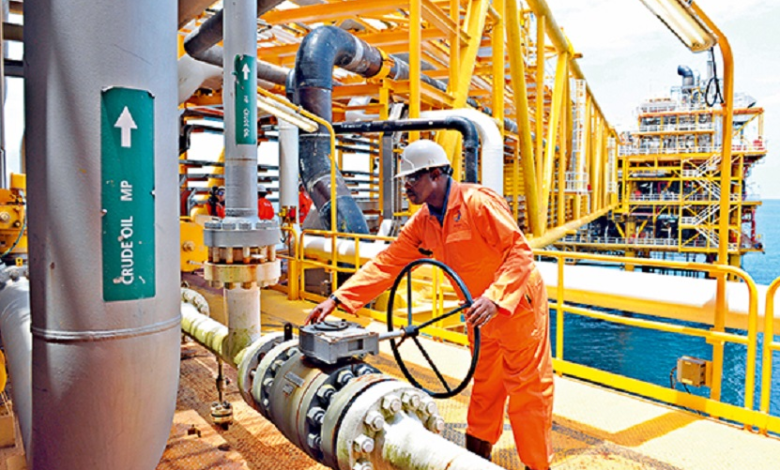Improving Industrial Operations with Advanced Oil Treatment

The Significance of Oil Maintenance in Industry
Industrial machinery relies heavily on oils for lubrication, cooling, and hydraulic functions. Over time, these oils can accumulate contaminants such as dust, metal fragments, and moisture, which compromise the performance of equipment and increase operational costs. Maintaining the quality of oil is essential for sustaining machinery efficiency, reducing maintenance needs, and ensuring consistent production output.
Advanced oil treatment solutions provide a systematic approach to maintaining oil purity, enabling industries to extend equipment lifespan and improve overall operational performance. By eliminating impurities and stabilizing oil quality, companies can achieve better reliability and cost efficiency.
How Oil Treatment Systems Benefit Industrial Processes
Oil treatment systems are specifically designed to improve the quality of industrial oils. These systems remove suspended solids, water, and gases that negatively affect equipment performance. The key benefits of integrating oil treatment systems include:
- Enhanced equipment longevity: Clean oil reduces friction and wear on moving components, extending machinery life.
- Operational reliability: Purified oil helps prevent sudden equipment failures, ensuring smooth production processes.
- Cost savings: Reduced maintenance and less frequent oil replacement result in lower operational expenses.
Industries such as manufacturing, power generation, and automotive production increasingly rely on oil purification technology to achieve high performance and operational efficiency.
Features of Modern Oil Purifier Machines
Modern oil purifier machines are equipped with advanced features to maximize purification efficiency. Some of the most important features include:
- Multi-stage filtration: Combining mechanical, chemical, and centrifugal methods to remove different types of contaminants.
- Automatic monitoring systems: Sensors provide real-time feedback on oil condition, allowing for proactive maintenance.
- Energy-efficient operation: Machines are designed to minimize power consumption while maintaining high purification performance.
- Scalable design: Systems can be adapted for small workshops or large industrial plants, offering flexibility for different operational requirements.
These features ensure that oil purifier machines not only enhance oil quality but also contribute to overall productivity and reduced downtime in industrial operations.
Types of Oil Purifier Machines
Different industrial applications require different types of oil purifier machines. Common types include:
- Centrifugal oil purifiers: Use centrifugal force to separate solid particles and water from oil, suitable for large-scale operations.
- Vacuum dehydration units: Remove moisture and dissolved gases, ideal for turbine and hydraulic oils.
- Filter-based purifiers: Utilize mechanical filters to trap solid impurities, widely used across various industrial systems.
Selecting the appropriate type of purifier depends on the volume of oil, type of contaminants, and specific industrial requirements.
See also: Enhancing Industrial Automation with High Accuracy Electronic Pressure Regulator Technology
Advantages Beyond Equipment Protection
Oil purifier machines offer benefits beyond extending the life of machinery. Key advantages include:
- Environmental impact: Reusing purified oil reduces the volume of waste oil, promoting sustainable industrial practices.
- Cost efficiency: Reduced oil replacement and maintenance costs enhance overall budget management.
- Improved safety: Clean oil reduces the risk of equipment overheating, corrosion, or failure, creating a safer work environment.
These advantages make oil purifier machines a strategic investment for industries seeking operational efficiency and sustainability.
Maintenance and Operational Guidelines
To ensure optimal performance, oil purifier machines require regular maintenance and careful operation. Best practices include:
- Routine inspections: Regularly check filters, gauges, and oil quality for signs of contamination or system wear.
- Timely replacement of filtration elements: Maintaining effective filters ensures consistent purification performance.
- Operator training: Educating staff on machine operation and early signs of oil contamination increases efficiency.
- Proper integration: Correct installation within industrial systems minimizes downtime and enhances overall effectiveness.
Following these guidelines ensures that oil purifier machines operate efficiently and deliver long-term value to industrial operations.
Economic and Industrial Impacts
Investing in oil purifier machines provides oil purifier machine manufacturer substantial economic benefits. Cleaner oil reduces machinery wear, lowers maintenance costs, and prevents unplanned downtime. These factors translate into significant savings and improved productivity.
From an industrial perspective, adopting advanced oil purification contributes to more sustainable operations. Reducing waste oil disposal, conserving resources, and maintaining compliance with environmental regulations positions companies as responsible industry leaders.
Emerging Trends in Oil Purification Technology
The field of oil purification continues to evolve with innovations that enhance efficiency, sustainability, and smart operation. Key trends include:
- IoT-enabled purification systems: Remote monitoring and predictive maintenance improve system reliability and reduce operational risks.
- Eco-friendly filtration materials: Innovative components reduce environmental impact while maintaining high purification efficiency.
- Compact and modular designs: Machines are more adaptable, easy to install, and scalable for different industrial requirements.
- Advanced multi-stage purification techniques: Combining centrifugal, vacuum, and filtration methods achieves near-zero contamination levels.
These trends indicate that the demand for intelligent, energy-efficient, and environmentally conscious oil purification solutions will continue to grow.
Choosing a Reliable Oil Purifier Machine Manufacturer
Selecting a dependable oil purifier machine manufacturer is critical to achieving long-term operational success. Factors to consider include:
- Industry experience: Manufacturers with a proven track record provide confidence in machine reliability.
- Customization options: Suppliers capable of designing systems to meet specific industrial needs ensure optimal performance.
- After-sales support: Comprehensive maintenance and technical support enhance system longevity.
- Compliance with international standards: Quality certification ensures safe and reliable operation.
Working with a trusted manufacturer ensures that industrial operations benefit from high-quality equipment and continued technical support.
Conclusion
Efficient oil treatment is essential for maintaining industrial machinery performance and minimizing operational costs. Modern oil purifier machines provide advanced filtration, real-time monitoring, and energy-efficient operation, delivering tangible benefits for equipment longevity, productivity, and sustainability.
Industries that invest in high-quality oil purifier machines not only improve operational performance but also adopt responsible and sustainable practices. As technology continues to advance, oil purification systems will become more intelligent, adaptable, and efficient, supporting industrial growth and operational excellence for years to come.





